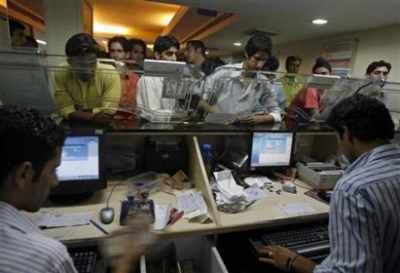The telecom sector is in the midst of another major shift as voice gives way to data.
 Paolo Colella, the India head at Ericsson, the Swedish telecom multinational, talks to Malini Bhupta on what a networked society would look like and how they're working with companies to develop new business models.
Paolo Colella, the India head at Ericsson, the Swedish telecom multinational, talks to Malini Bhupta on what a networked society would look like and how they're working with companies to develop new business models.
Edited excerpts:
Ericsson says it is focused on comprehensive solutions for a networked society. What solutions can it bring to India?
India has specific requirements, which might need us to tailor our portfolio accordingly.
For example, India's digital revolution will happen through mobiles.
That creates some difference with the West, which has developed broadband mostly through wireline and fibre networks.
The other aspect is economics and affordability. As connectivity goes mobile, the next step will be to connect devices that belong to individuals.
There are also broader scenarios of connectivity that have applications in agriculture and in control of pollution and waste.
A connected world opens a number of applications equally important for India. Given this country's focus on frugal innovation, it could eventually even export technological solutions.
How can India leverage technology in these areas?
It could look at optimising the use of water in irrigation by controlling soil and waste. India can look at technology to modernise production of energy.
Modern technology like smart grids allow distribution of energy consumption in a more uniform way, so that production can be optimised.
If digital connectivity will come to India through the mobile, what are the opportunities and challenges?
The need for a mobile broadband network will call for enhanced back-haul.
Fibre will not be able to solve all problems, so there will be a need for investment in more modern microwave technology to reach every mobile cell site. The country's information technology (IT) backbone will change.
 How can telecom operators reinvent and transform as data becomes more important than voice?
How can telecom operators reinvent and transform as data becomes more important than voice?
As the business model goes from voice to multiple applications, customers need to rethink how they need to monetise their business.
They will need to change their IT systems and modernise these. The revenue driver was voice, a single product. Now, the revenue driver is a multiplicity of applications.
Each one will have an impact on capital and resource allocation. Video will become their biggest traffic generator and it consumes a lot of bandwidth, which means operators will have to develop more capable infrastructure.
Most important, operators need to develop a monetisation engine that is real time and convergent, and allows them to be quick in packaging their portfolio in new ways.
There are different models across the world. Some operators are network providers and focus on connectivity.
Others are trying to position themselves higher up in the food chain and enable a broader ecosystem of applications.
Then, there are others who venture into OTT (Over-The-Top content refers to delivery of audio, video, and other media over the internet without the involvement of a multiple systems operator in the control or distribution) type of services.
All these models come with different challenges and require ingredients.
In India, we could have all the three, depending on what assets they have. We hear (Reliance) Jio will bring to the market a broad portfolio of services.
Some of the dominants will go that way. The development of business processes will determine their choices.
What technological investments will companies need to make if they have a broader application plan?
These players will need to have an articulate technology stack. This includes broadband network capabilities and delivery systems for video to any type of device.
They would also need analytic ability to analyse user behaviour and experience.
The telecom industry is a key enabler of the digital world but is the lowest adopter of digital connectivity.
There is a move towards disrupting the delivery model, which would drive down costs. We expect this to happen in India.
Are the networks of Indian telecom companies equipped to handle the data growth?
Well, directionally, yes. The country is on the right track and the amount of spectrum made available is larger.
A lot of policy bottlenecks are being addressed and this is helping to accelerate the creation of more capable networks.
For long, there has been talk about sharing of networks by multiple operators. Is the time right now?
We have seen network sharing in Australia and Sweden, with varying degrees of success.
It is one way to optimise capital expenditure. I won't be surprised to learn this is possibly happening. It normally happens when the market is in the second phase.
In the first phase, penetration is still improving. Now that we are going into an incremental market, the country does not provide an even return.
Covering India is an expensive exercise and operators can look at network sharing to deliver high-quality service.











